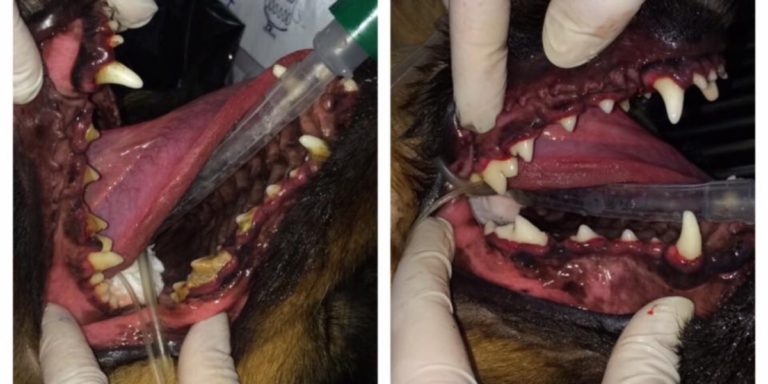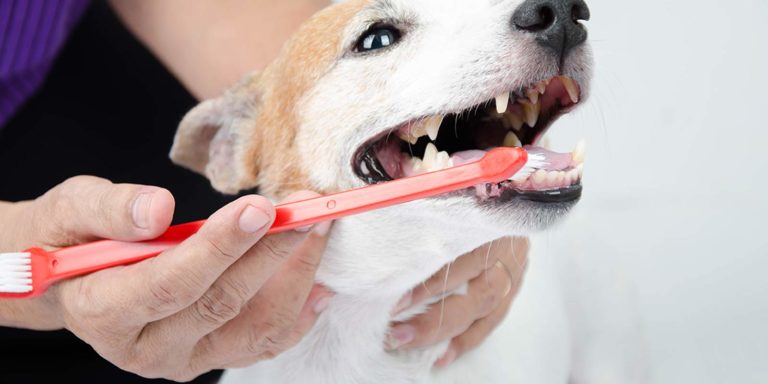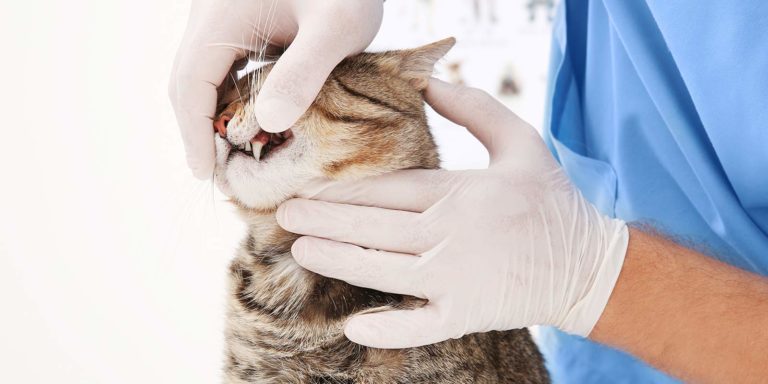Dental Health
February Dental Month Before & After
February is Pet Dental Month.
Did you know 85% of dogs and cats over the age of one are diagnosed with periodontal disease?
Dental Disease can also lead to systemic diseases in organs like the kidney and heart. Oral bacteria move through the blood stream to any vital organ.
Step 1: Book an appointment with our veterinary team for an oral exam
Step 2: Your pet is put under anesthetic for full mouth x-rays and to do their cleaning (scale, polish, fluoride)
Step 3: Our veterinarians determine if any extractions are advised, discuss with you their findings and preform the necessary extractions(if any)
Step 4: Recovery & Home Time with an improved quality of life for your pet!
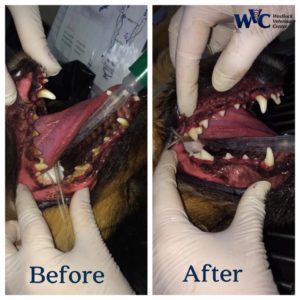
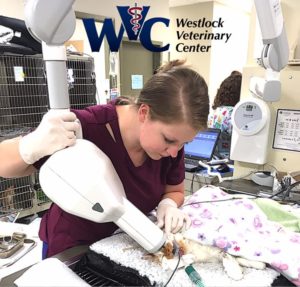
Preventing Dental Disease in Your Pet
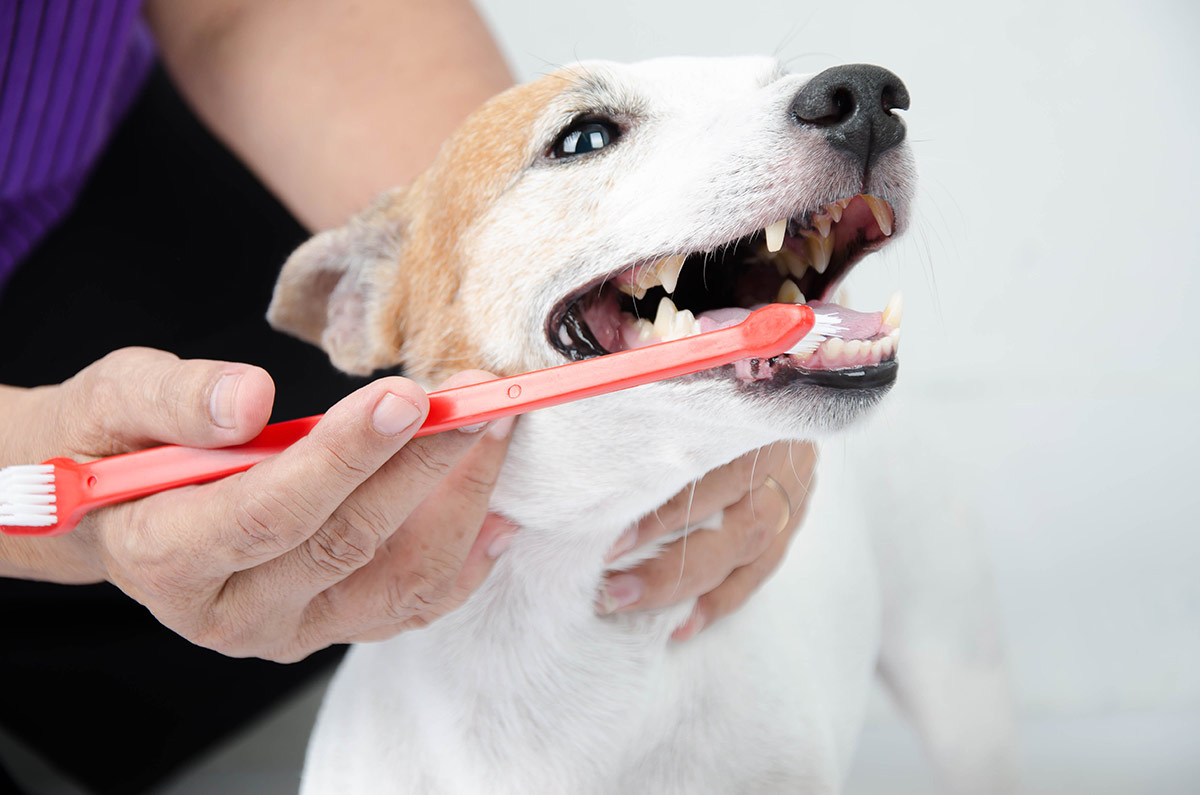
They always say it’s better and easier to prevent rather than treat disease. Practicing preventative methods is always best and easiest to incorporate when your pet is at a young age. These preventative methods include daily brushing of teeth, feeding specially formulated dental diets such as Royal Canin Dental Diet or Hill’s T/D, and feeding them specially designed treats such as Medi-Chews. Brushing your pets teeth is the most effective method of removing plaque. Feeding a dental diet will only remove some of the plaque and does not do as good of a job as brushing.
Once dental disease has progressed you can no longer prevent you have to treat. This usually requires extractions to remove diseased teeth to prevent further damage to other teeth and bone in the mouth. Also a dental cleaning and scaling is required to remove any built up tartar, because once it builds up it cannot be removed via brushing or feeding dental diets.
If you think your pet may have dental disease or you want advice, or have questions about your pets dental health just ask one of your veterinary professionals.
Oral Health
Do your pets teeth look like this?
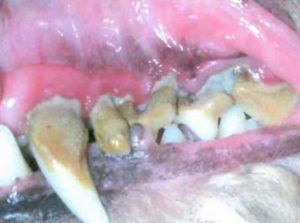
But you want them to look like this?
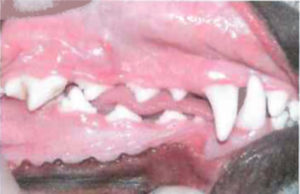
Book your pet in today for a dental cleaning and check-up. Often our pets oral health is neglected, which can cause severe gingivitis resulting in tooth loss, gum recession or even other health issues. Gingivitis if caught early can be reversible, however it is often left too long without treatment and causes permanent damage. It can also be unpleasant for us as owners because tartar build-up can cause foul smelling breath.
You can practice dental care at home by brushing your pets teeth, with either a finger toothbrush or soft bristled toothbrush and make sure you use pet toothpaste as human toothpaste has fluoride which is toxic to animals. Also feeding a specially formulated diet is a good way to prevent tartar.


